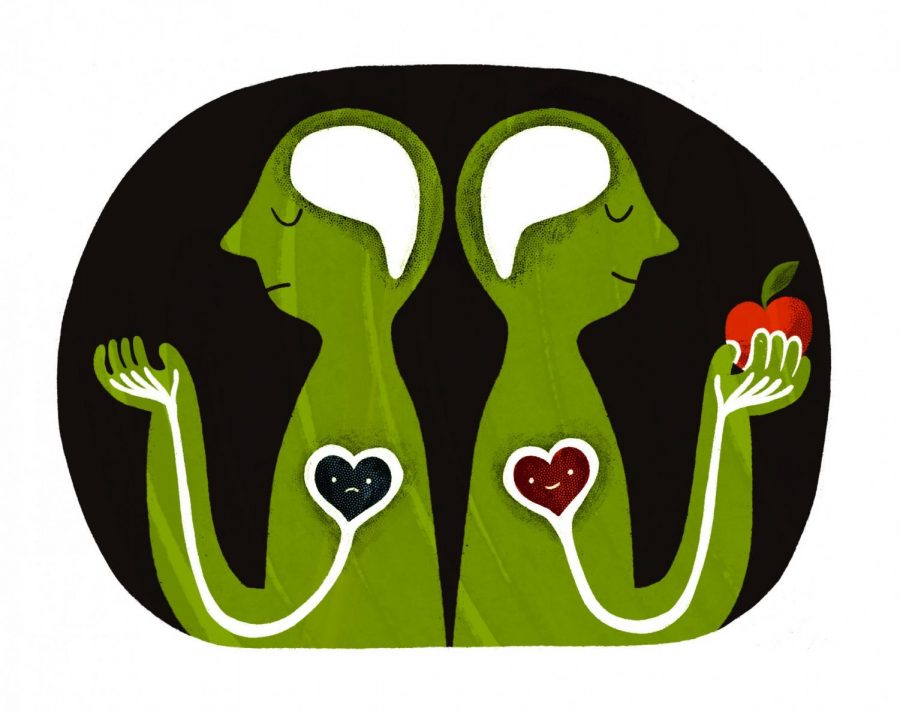The University of Minnesota Food Science and Nutrition (FScN) Student and Faculty symposium is scheduled for Dec. 16 to enable conversations surrounding the current curriculum and its future trajectory.
The symposium will be targeted toward FScN and food systems students but will be open to the public. It stems from the department looking at nutrients rather than the comprehensive system and students wanting to include the implementation of food systems education on a more significant scale.
On a national scale, the White House Conference on Nutrition on Sept. 28 addressed nutrition insecurity, food accessibility and food-centered education and generated conversation among undergraduates at the University about the lens through which nutrition is viewed within the curriculum.
Student and faculty panel members will discuss the department’s future, collective learning and maximizing transdisciplinary learning within FScN undergraduate education.
The University’s nutrition program is primarily focused on micro-sciences of nutrients, resembling “more of a calculation or equation,” public health nutrition instructor and chef Jennifer Breen said.
Breen said there are social and community components to some of the content taught in the department because there is a required community nutrition class for students. She said she sees a core adjective missing: the application of mathematical and scientific information translated onto human beings.
“The work of nutrition is always about humans, but it’s also about culture,” Breen said. “It’s about community, environment, politics, it’s about all of those things.”
Breen said she hopes to see more integration of food systems into the nutrition content that is delivered since it pertains to every part of human and environmental health.
Food systems represent numerous pieces of the puzzle in creating a more equitable curriculum focusing on the production, location, methods, engagement and distribution of food. It also takes into account accessibility, cost and a family’s or individual’s economic status.
Abby Gold, a nutrition specialist who works with Minnesota residents and serves at the Extension Center for Family Development, said she is seeing a general shift in interest among students. She said she has noticed students are less interested in people on a mass scale and more interested in seeing individuals with a cultural perspective in mind.
“People have different beliefs, cultures, ways of understanding the world and the things that happen within it, so having that cultural humility is really important,” Gold said.
Gold said embedding food systems education can provide cultural humility, which is the practice of evaluating how one’s own background can affect teaching and learning. This practice also requires honoring the culture and beliefs of individuals, in the classroom and community.
There are current University initiatives that could potentially create a “spiral curriculum,” where the themes of diversity, equity and inclusion are reiterated through several courses, FScN professor Francine Overcash said.
“I’ve seen an expansion in interest among students who are engaging in the diversity, equity and inclusion aspects, as well as wanting more project-based learning,” Overcash said. “They’re more willing to voice their interest in other areas outside just the micro and historically typical didactic program, it’s always good for the department to evolve along with the times.”
Gold said she hopes to see practitioners within public health programs such as the Special Supplemental Nutrition Program for Women, Infants & Children or the National School Lunch Program, instructors, faculty, and past students on the symposium panel to hear about their current careers.
“It’s important to also have some alumni that have nontraditional jobs that are working in policy areas that aren’t practice-oriented,” Gold said.
These alumni would include farmers, agriculturists and those who work within production. Gold also hopes to see advocacy figures who have missions to eliminate hunger and promote local foods.
The U.S. Department of Agriculture (USDA) plays a substantial role in the inequitable standards that are then transferred into students’ curriculum, Breen said.
Breen said she believes the USDA standards are problematic because they still label milk as a suggested food that all Americans should be drinking, although a recent statistic states that up to 80% of people of African and Asian descent are lactose intolerant.
Breen said these federally-established guidelines emphasize the dietary disconnects that are brought down from our federal government and that the University is not to blame for this issue.
Breen said she plans to be a panel member. She said it is important to emphasize the power in being not only a critical thinker, but also questioning with an independent mind and seeking to analyze dialogue and speech.
“We need to re-examine where our science is coming from and what’s influencing it, and then ultimately, how we’re translating it and presenting it to students,” Breen said.






















Lord Dragonic
Dec 10, 2022 at 4:15 pm
Why do i see you everywhere
jP.JIUJIANG.INFO/Q10041iZ